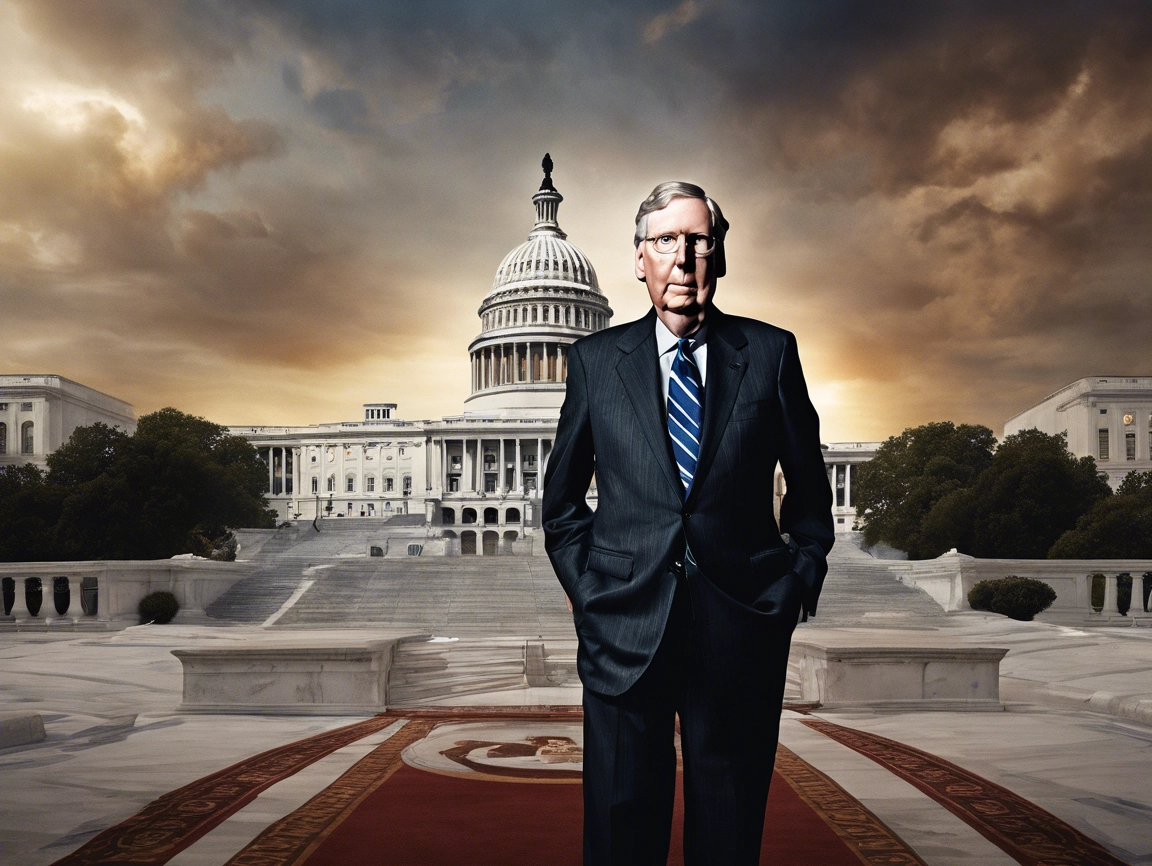Introduction
After nearly four decades in the U.S. Senate, Mitch McConnell, the Republican senator from Kentucky, is redefining his role in Congress. Known as a formidable strategist and influential leader, McConnell has decided to step away from his long-held position as GOP leader. Instead, he will chair two critical committees: the Senate Appropriations Subcommittee on Defense and the Senate Rules Committee. This move underscores McConnell’s continued dedication to shaping U.S. policy on national security and political governance, even as he transitions from party leadership.
Mitch McConnell’s Senate Legacy
Mitch McConnell’s career is one for the history books. First elected in 1984, McConnell has been a steadfast figure in the Senate for over 40 years, making him the longest-serving senator in American history. His tenure as Senate Majority Leader and later Minority Leader has been marked by significant legislative accomplishments, including tax reforms and reshaping the judiciary with a more conservative bench.
During his leadership, McConnell navigated a polarized political landscape, skillfully advancing Republican priorities while maintaining an ironclad grip on his caucus. His legacy includes not only legislative victories but also his role as a central figure in modern American politics.
New Roles: Defense and Rules Committee Chairs
With his transition away from GOP leadership, McConnell will take on two influential roles in the Senate. As chairman of the Senate Appropriations Subcommittee on Defense, he will oversee the drafting of the Pentagon’s $825 billion annual spending bill. This position allows McConnell to influence defense policy, a role he views as critical given today’s global threats.
In addition, McConnell will chair the Senate Rules Committee, which plays a vital role in ensuring the integrity of the legislative process. His focus on protecting political speech in elections highlights his commitment to upholding democratic principles in a rapidly changing political environment.
Focus on National Defense
McConnell has long championed a robust national defense strategy, and his new role aligns perfectly with this mission. The Defense Subcommittee focuses on allocating resources to modernize military capabilities, address emerging threats, and support U.S. allies. McConnell has been a vocal advocate for increasing defense spending, arguing that the current budget is insufficient to meet the challenges posed by adversaries like Russia, Iran, and China.
One of McConnell’s key priorities is supporting Ukraine in its ongoing conflict with Russia. His stance on providing military aid reflects his broader commitment to maintaining U.S. leadership on the global stage. Through his new role, McConnell aims to ensure that the U.S. remains prepared to respond to both traditional and unconventional threats.
Commitment to Political Integrity
As chair of the Senate Rules Committee, McConnell will focus on safeguarding the democratic process. The committee oversees election laws, campaign finance regulations, and Senate procedures. McConnell has emphasized the importance of protecting political speech, which he sees as a cornerstone of free and fair elections.
This role also positions McConnell to address emerging challenges, such as misinformation and cyber threats, that could undermine the integrity of future elections. His leadership on this committee will likely influence how the Senate navigates these complex issues in the coming years.
Why McConnell’s Transition Matters
McConnell’s decision to step down as GOP leader while taking on these significant roles is a calculated move. By focusing on defense and governance, he can continue shaping U.S. policy without the pressures of leading his party. His expertise and strategic acumen remain assets to the Senate, ensuring that his influence endures even as the Republican Party charts a new course under John Thune’s leadership.
John Thune’s Leadership
The election of Sen. John Thune as GOP majority leader marks a new chapter for the Republican Party. Thune, known for his legislative experience and pragmatic approach, has received McConnell’s full endorsement. McConnell’s support reflects his confidence in Thune’s ability to navigate the complexities of Senate leadership and advance the party’s agenda.
McConnell’s Relationship with Key Figures
Throughout his career, McConnell has worked closely with both Republican and Democratic presidents. His collaboration with President Biden on bipartisan initiatives and his partnership with former President Trump on conservative policies demonstrate his ability to adapt and lead across administrations. These relationships have shaped his legislative achievements and cemented his reputation as a master negotiator.
Health Concerns and Public Perception
In recent years, McConnell’s health has been a topic of public discussion. After suffering a concussion from a fall and experiencing moments of freezing during public appearances, questions arose about his ability to continue serving. However, his team has emphasized that his decision to step down from GOP leadership is not health-related. McConnell remains committed to his Senate duties, as evidenced by his new roles.
Speculation About McConnell’s Future
As McConnell approaches the end of his current term, speculation about his political future has intensified. He is up for reelection in 2026 but has not announced whether he will seek another term or retire. Regardless of his decision, McConnell’s impact on the Senate and American politics is undeniable.
Conclusion
Mitch McConnell’s announcement marks a pivotal moment in his storied career. By stepping into his new roles, he reaffirms his commitment to serving the nation and addressing critical issues. As he focuses on national defense and political integrity, McConnell’s legacy continues to shape the Senate and the future of U.S. policy.

